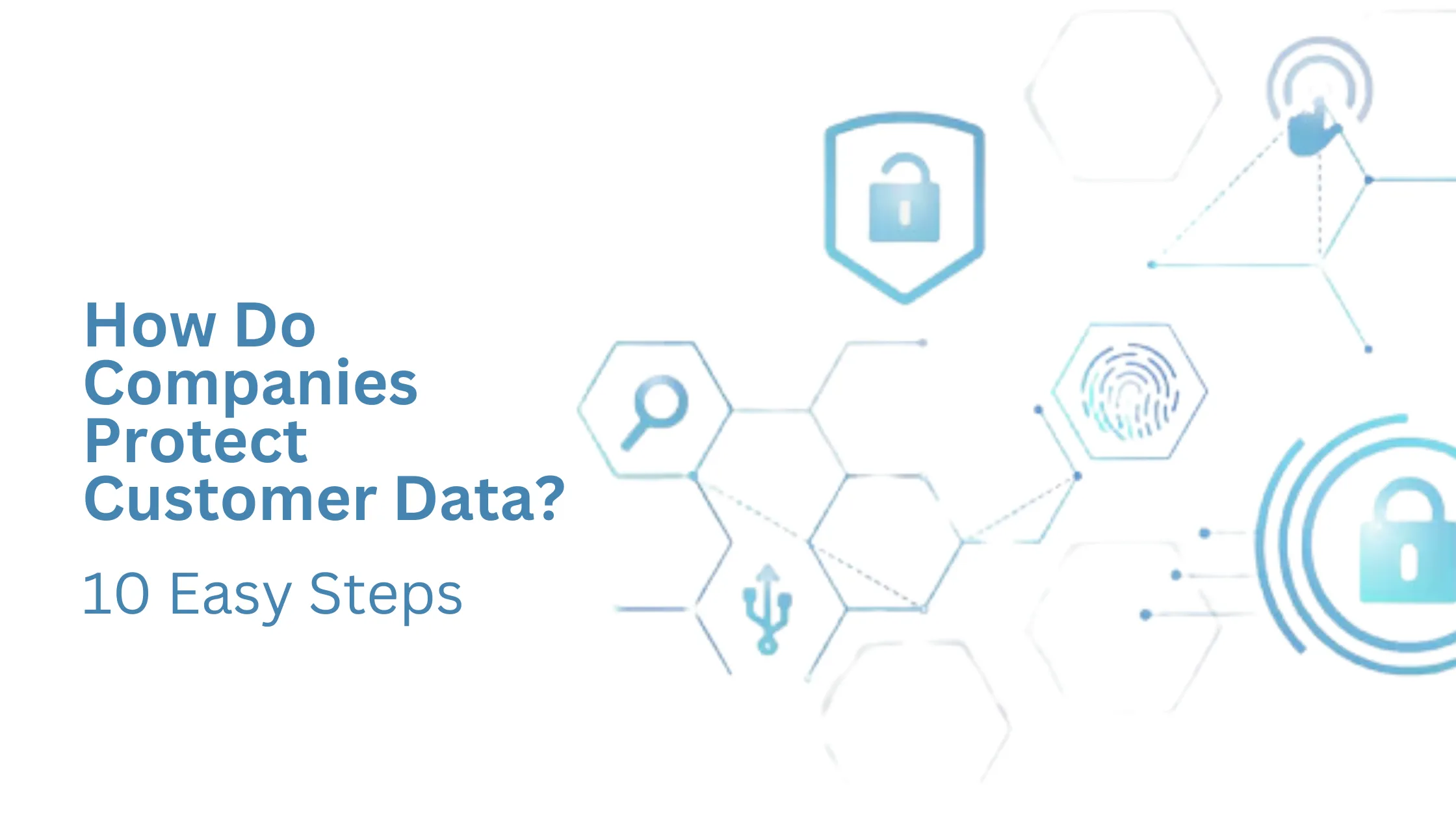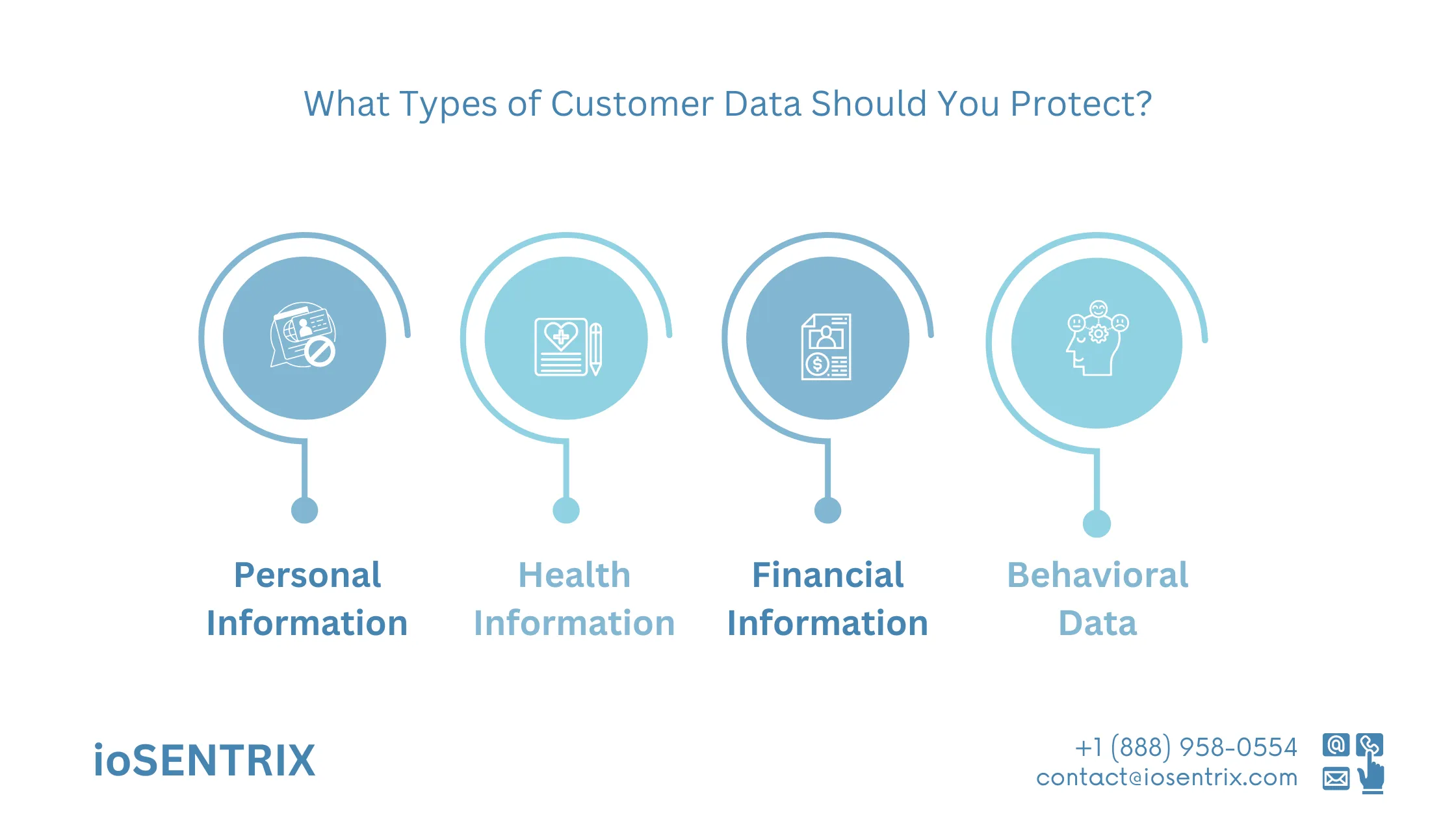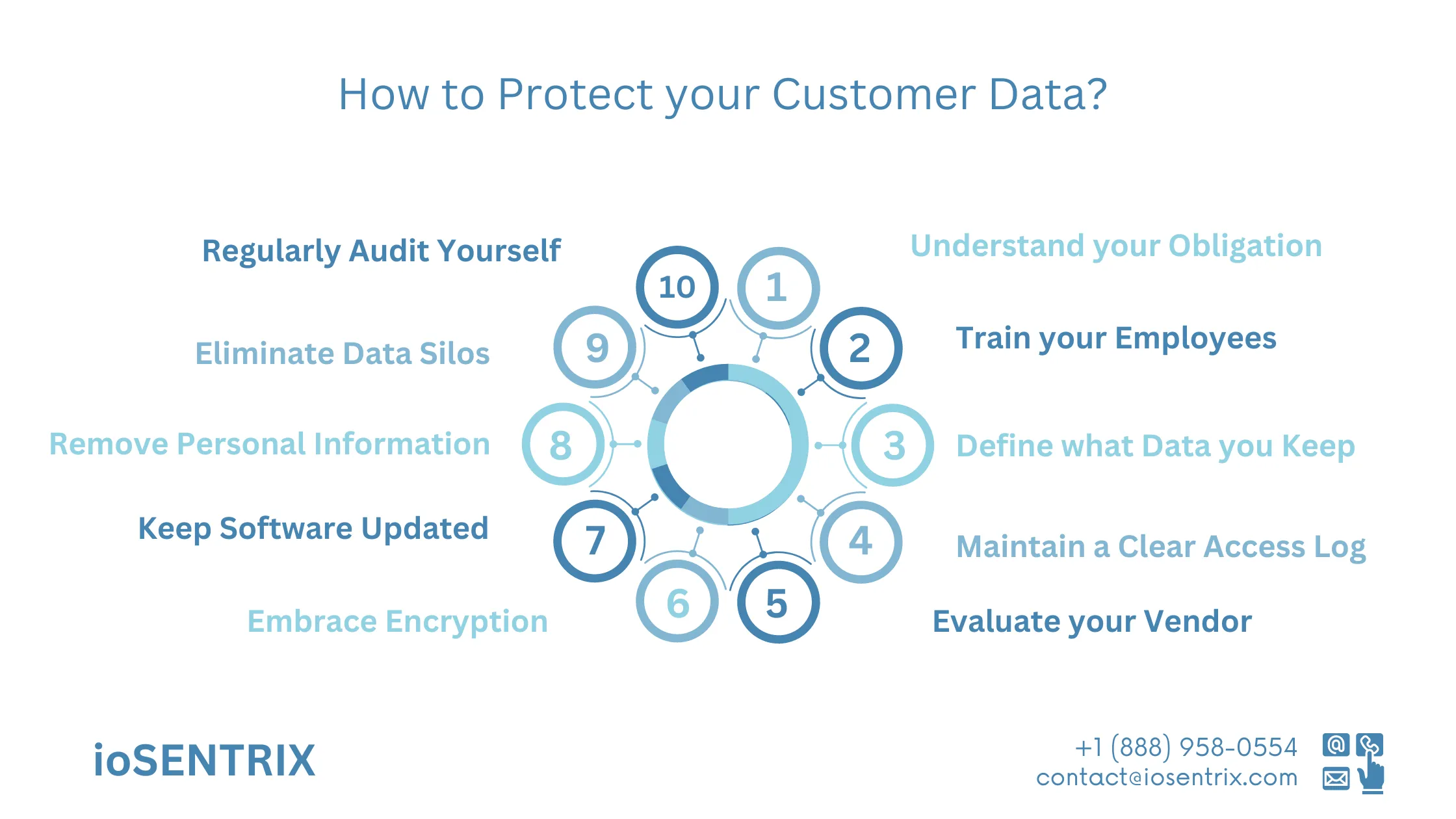
Customers entrust companies with private data regularly, not realizing how important it is to protect that data from unauthorized access. Risks such as data breaches can expose personal details like credit card numbers and other sensitive information to the public.
When customer information is compromised, trust is shattered and safety is at stake. Unauthorized access through hacking, malware, or security gaps can leave user’s privacy exposed. Thus, implementing a comprehensive data protections strategy is extremely crucial.
This blog post aims to let you know why customer data must be protected, types of customer data that companies protect, and the key steps to protect it from malicious access.
Safeguarding customer data is crucial for creating reliable personalized customer experiences (CX). With the rising need for AI-driven personalized interactions, CX leaders are developing new skills to secure data and improve the customer journey.
Strong data protection practices can help businesses earn customer trust. Brands that prioritize customer data privacy and transparency can utilize the potential of personalized experiences that help retain customer trust. This approach can enhance your brand’s reputation and boost your profits.
For customers, effective security measures pave the way for more personalized experiences. Personalization is key as it shapes the experience of each individual, whether through personalized product recommendations based on past purchases or proactive customer support. When businesses prioritize data protection and are confident in collecting and utilizing customer data, they can deliver a superior, highly personalized CX.
The United States does not have a single regulatory body managing all the regulations and laws. These regulations are divided into locations and industries. Here are some major regulatory bodies:
Health Insurance Portability and Accountability Act (HIPAA): Forms the security and privacy standards for the healthcare sector. This governing body regulates the communication between health institutions and patients.
California Consumer Privacy Act (CCPA): This act protects the privacy concerns of California citizens and requires businesses to disclose data collection procedures in the state.
Family Educational Rights and Privacy Act (FERPA): Allows parents to have educational records of their children and protects student records.
General Data Protection Regulation (GDPR): This regulation forms the rules and standards to protect, process, and collect data of EU citizens.
It’s essential to safeguard all customer data. Here are some common types of customer data to consider:
Personal Identifiable Information (PII): This includes details that can directly identify a person, like names, addresses, phone numbers, and Social Security numbers.
Personal Health Information (PHI): This covers medical information such as records, diagnoses, treatments, and insurance details.

Financial Information: This involves data like credit card numbers, bank details, and payment histories.
Behavioral Data: This pertains to how customers engage online, including the websites they visit, purchases they make, and content they interact with.
Remember, depending on your industry, you may encounter other data types depending on your industry. However, regardless of your business, prioritizing the management and security of customer data is crucial.
The initial step to safeguarding customer data involves understanding the topic well. Get acquainted with relevant data laws and regulations in your industry and pay attention to your customer demographics.
For instance, if your primary customer base is in the United States but you also serve European clients, it’s important to research European privacy laws to ensure compliance. Additionally, be mindful of industry-specific regulations like adhering to HIPAA if you operate in the healthcare sector.
A lot of data breaches happen because of human mistakes. This could be losing important passwords or falling for a fake email from a cybercriminal pretending to be the CEO.
Since data can be easily compromised, it’s vital to train and practice with your team regularly. This helps them grasp why it’s crucial to protect customer data and learn the right steps to take. Define what Data you Keep
Numerous businesses use customer analytics to shape their marketing strategies and enhance their products. However, having excessive customer data can pose risks. Cybercriminals often target companies with vast amounts of consumer data such as the healthcare industry.
It’s advisable to review all the customer data your business holds and assess its relevance to your operations. Retain necessary information and remove unnecessary data to reduce your vulnerability to cyber threats.
Not all employees require access to all customer data. For instance, a customer service representative may not need the same data as a marketing team member. Restricting access to necessary employees is a wise approach.
Additionally, maintaining a detailed access log is essential. This log tracks who views specific data and enables you to monitor adherence to best practices and prevent unauthorized access.

Before entrusting your data to a third-party vendor or your customer data platform (CDP), it’s crucial to assess them. Do research to confirm their adherence to data protection laws and their capability to manage your sensitive data. Also, check if they hold certifications in data protection.
For instance, ioSENTRIX holds various compliance certifications and memberships to safeguard the privacy of your data.
Encryption is a security method that hides data so only approved users can understand it. If someone unauthorized tries to view encrypted data, it will look like a jumble of characters—but once the right users access it, the data becomes readable again.
This tool is beneficial in various scenarios, like securing a Wi-Fi network or storing important passwords in a password manager. Encrypting data whenever you can provides an additional level of security that helps lower the chances of data breaches.
Getting frequent software update reminders might feel bothersome, but it’s a smart move for cybersecurity. These updates usually include security fixes and other changes that make it tough for hackers to infiltrate your system. Hackers often target businesses with outdated software, so by staying current with your updates, you can avoid becoming an easy target.
Sometimes, you might have to keep data or share a file containing confidential details. During these instances, edit out unnecessary customer or employee information. For example, eliminate a customer’s Social Security number from a document the marketing team requires. Consistently practicing redaction can help restrict the exposure or misuse of sensitive data.
Data silos occur when companies store different types of data in multiple places, like keeping customer billing records in one system and purchase history in another. To address this, create centralized locations to store all important information and customer data visuals. Bringing everything together in one place enhances data security, improves data handling, and allows support teams to personalize customer interactions effectively.
Lastly, it’s important to perform routine internal audits to confirm that your security measures are consistently effective. These internal security checks involve conducting penetration tests and vulnerability scans to evaluate your security posture.
Protecting customer data in these ways highlights the importance of proactive data safety measures. Businesses must identify and address their vulnerabilities to protect customer card information from emerging threats.
ioSENTRIX experts are specialized in data protection for your digital world. We employ strong password policies, encryption software updates, limited access to sensitive information, secure networks, and strong backups to protect not only the data but our customers as well.